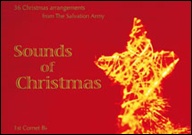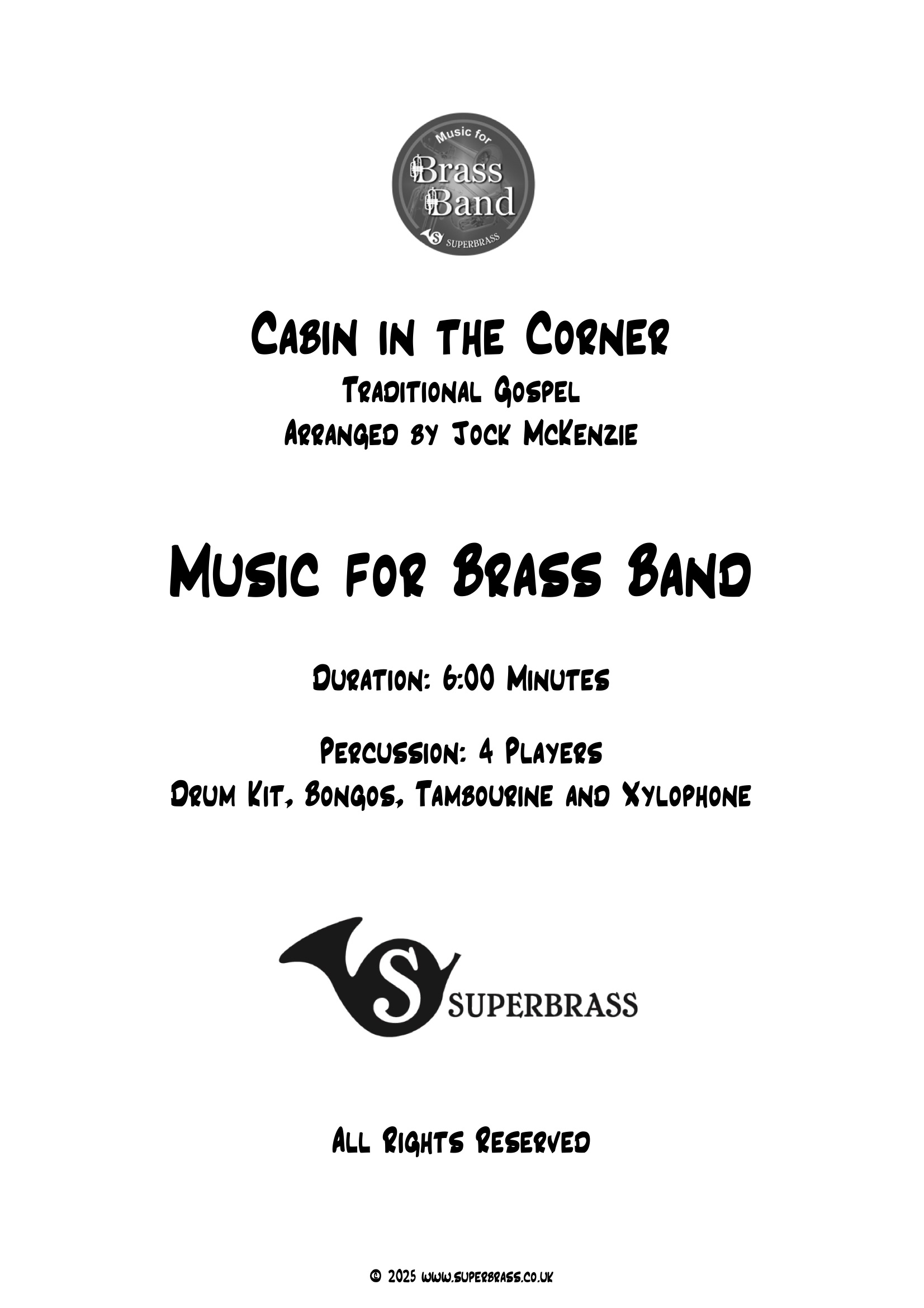Results
-
 £7.99
£7.99New Christmas Praise (Timpani)
Think of a Christmas tune or carol, and it's almost bound to be in this excellent collection of 115 Christmas arrangements. Contents are listed on the PDF. Specially arranged for brass or wind band (or a mixture of both.) A must for all bands intending to do some 'carolling'. The SATB Choral Editions Part 1 and 2 can be used as a score.
Estimated dispatch 7-14 working days
-
 £54.20
£54.20SONG OF THE VOLGA BOATMEN (Brass Band) - Smith, Sandy
Grade: Medium. Part of the Essential Glenn Miller collection.
Estimated dispatch 7-14 working days
-
 £29.95
£29.95SOUNDS OF CHRISTMAS (Full Score)
Sounds of Christmas is a brand new collection of 36 Christmas arrangements and compositions that can be played by groups as small as five players, with the parts available as follows: Part 1: Bb and C; Part 2: Bb, Eb and F; Part 3: Bb, Eb, F and C BC; Part 4: Bb TC and C BC; Part 5: Eb TC, Bb TC and C BC. The full score does not contain all the instruments available, only the Bb and Eb pitched instruments (except the optional Eb Soprano cornet) and Percussion. Sounds of Christmas is sure to add interest to your Christmas carol playing and offers interesting additions to your Christmas concert repertoire. Includes: A Holly Waltz (The Holly and the Ivy); A Starry Night; Away in a Manger; Chiming Bells (Sweet Chiming Christmas Bells); Christmas Joy (March); Christmas Praise (March); Coventry Carol; Ding Dong! (Ding Dong! Merrily on High); God Rest You Merry, Gentlemen; Good Christian Men, Rejoice; Good King Wenceslas; Hark! THe Herald Angels Sing; Have Yourself a Merry Little Christmas; Infant Holy; It Came Upon a Midnight Clear; Jesus, Good Above All Other; Joy to the World; Mary's Boy Child; Mid-Winter (In the Bleak Mid-Winter); Normandy Carol (Away in a Manger); O Come, All Ye Faithful; O Little Town of Bethlehem; Once in Royal David's City; Rudolph, the Red-Nosed Reindeer; Silent Night; Sounds of Christmas (March Medley); The Andel Message (While Shepherds Watched); The Everlasting Light (O Little Town of Bethlehem); The First Nowell; The Infant King; The Manger Scene; The Virgin Mary had a Baby Boy; Three Kings' March; To Celebrate His Birth (March); We Wish You a Merry Christmas; Yuletide Rag (Deck the Hall).
Estimated dispatch 7-14 working days
-
 £30.00
£30.00Cabin in the Corner - Traditional Gospel
Initially made famous by Hank Williams and inspired by the arrangement that appears on James Morrison's Gospel Collection Volume 1 album, released in 2006.
-
 £30.00
£30.00Ding Dong Merrily on High - Traditional
The popular French tune of this carol first appeared as a secular dance named "Branle de L'Official". It appeared in 'Orchesographie', a collection of dances published in 1589 and written by Jehan Tabouret (pen name Thoinot Arbeau). The established lyrics were written by the English composer George Ratcliffe Woodward and first published in 1924; appearing in the Cambridge Carol Book.
-
 £30.00
£30.00I Saw Three Ships - Traditional
This is a traditional English carol rumoured to have originated in Derbyshire. The earliest printed version is from the 17th century and the familiar version was later published in William Sandys' collection of 'Christmas Carols Ancient and Modern' in 1833. There are numerous theories as to the meaning of the carol's words; after all, Bethlehem, the place of Jesus' birth is not a coastal location. It has been suggested that the ships are actually camels (ships of the desert) used by the Magi for their visit to the baby Jesus. My arrangement takes advantage of the traditional 'jig' style of this carol to add a little 'Celtic' flavour.
-
£26.50
Away in a Manger - Traditional - Broadbent, D
Away in a Manger is a gentle and much beloved Christmas carol that depicts the nativity of Jesus with warmth and simplicity. Its tender melody have made it a favorite for children's choirs, family sing-alongs, and Christmas services, capturing the quiet wonder and innocence of the Christmas story.Part of Derek Broadbent's Showcase Carols Collection
In Stock: Estimated dispatch 1-3 working days
-
£26.50
Hark the Herald Angels Sing - Traditional - Broadbent, D
Hark! The Herald Angels Sing is one of the most celebrated Christmas carols. The song joyfully proclaims the birth of Jesus and the message of peace on Earth, inviting all to join in the heavenly celebration. With its triumphant melody and uplifting lyrics, it has become a cornerstone of Christmas worship and festive performances, capturing the grandeur and jubilation of the holiday season.Part of Derek Broadbent's Showcase Carol Collection
In Stock: Estimated dispatch 1-3 working days
-
£26.50
O Little Town of Bethlehem - Traditional - Broadbent, D
O Little Town of Bethlehem is a cherished Christmas carol that evokes a sense of calm and reverence. Its gentle melody have made it a staple of Christmas services and concerts, celebrating the humble beginnings of a story that inspires faith and joy.Part of Derek Broadbent's Showcase Carol Collection
In Stock: Estimated dispatch 1-3 working days
-
£26.50
Rocking Carol - Traditional - Broadbent, D
Rocking Carol is a traditional Christmas carol. The song takes the form of a gentle lullaby sung to the infant Jesus. With its soothing melody and rocking rhythm, it evokes the peaceful image of Mary cradling her child. Rocking Carol remains a cherished favorite for Christmas services, celebrated for its simplicity and heartfelt devotion.Part of Derek Broadbent's Showcase Carol Collection.
In Stock: Estimated dispatch 1-3 working days
